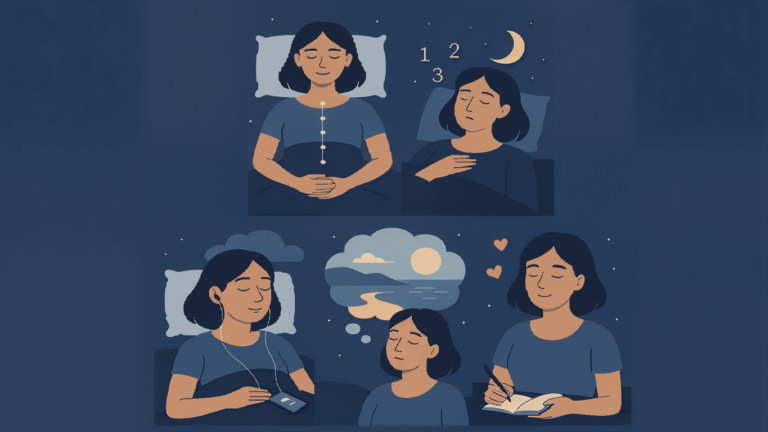Sleep meditation techniques can help calm a racing mind and prepare your body for deep, restorative sleep. In today’s fast-paced and overstimulated world, many people struggle to fall asleep due to stress or anxiety. According to the Mayo Clinic, meditation techniques for sleep can help relax the body, calm the mind, and promote better sleep — without relying on medication.
Instead of forcing sleep or turning to pills, meditation offers a natural way to activate your body’s relaxation response. In this guide, you’ll learn five simple sleep meditation techniques you can practice before bed to fall asleep faster and improve overall sleep quality.
Why Use Sleep Meditation Techniques?
Practicing sleep meditation before bedtime can help:
- Reduce anxiety and nighttime overthinking
- Lower heart rate and stress hormone levels
- Relax the nervous system
- Improve sleep depth and consistency
Even 5–10 minutes of nightly meditation can make a noticeable difference in how quickly you fall asleep and how rested you feel in the morning.
Best Sleep Meditation Techniques to Calm Your Mind
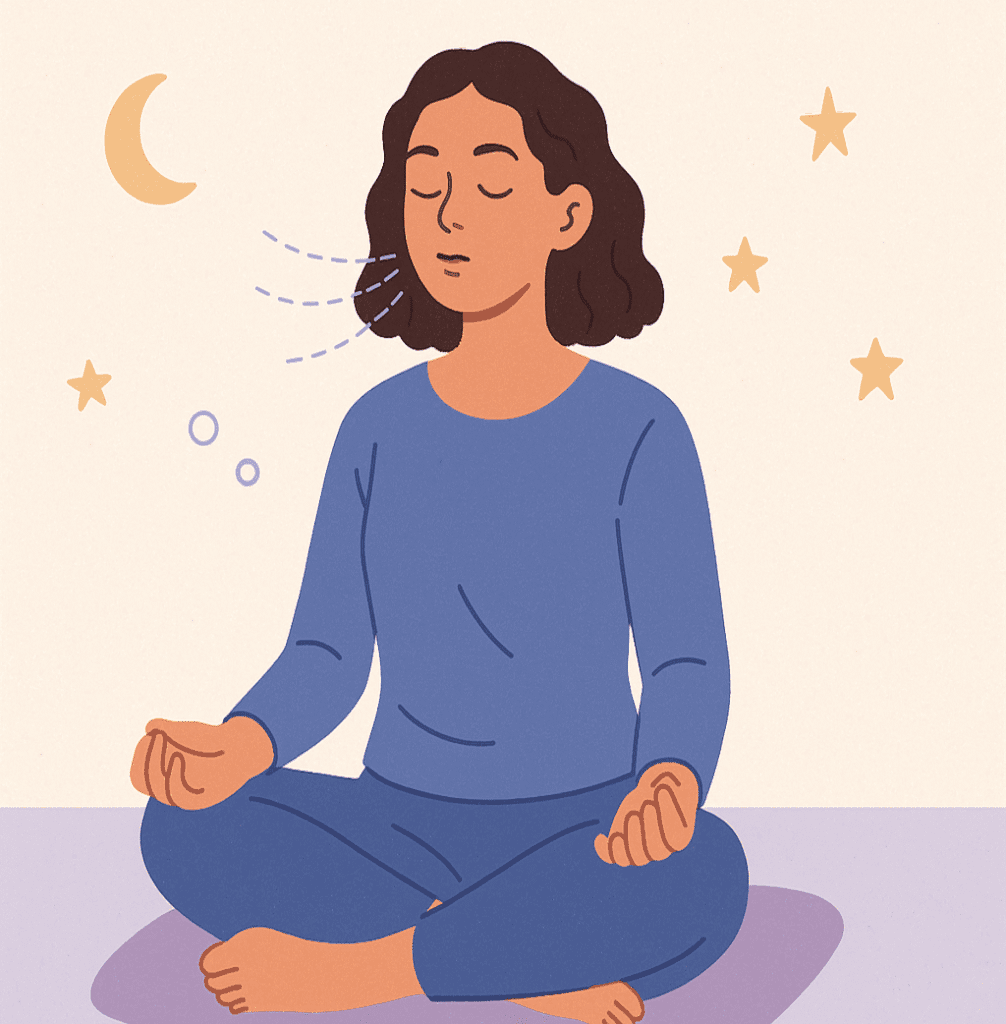
1. Mindful Breathing for Better Sleep
Mindful breathing is one of the most effective and beginner-friendly sleep meditation techniques.
How to practice:
Lie comfortably in bed and close your eyes. Inhale slowly through your nose for a count of four, then exhale gently through your mouth for a count of six. Focus your attention only on your breath.
Why it works:
Slow breathing signals safety to your nervous system, helping quiet racing thoughts and prepare your body for sleep.
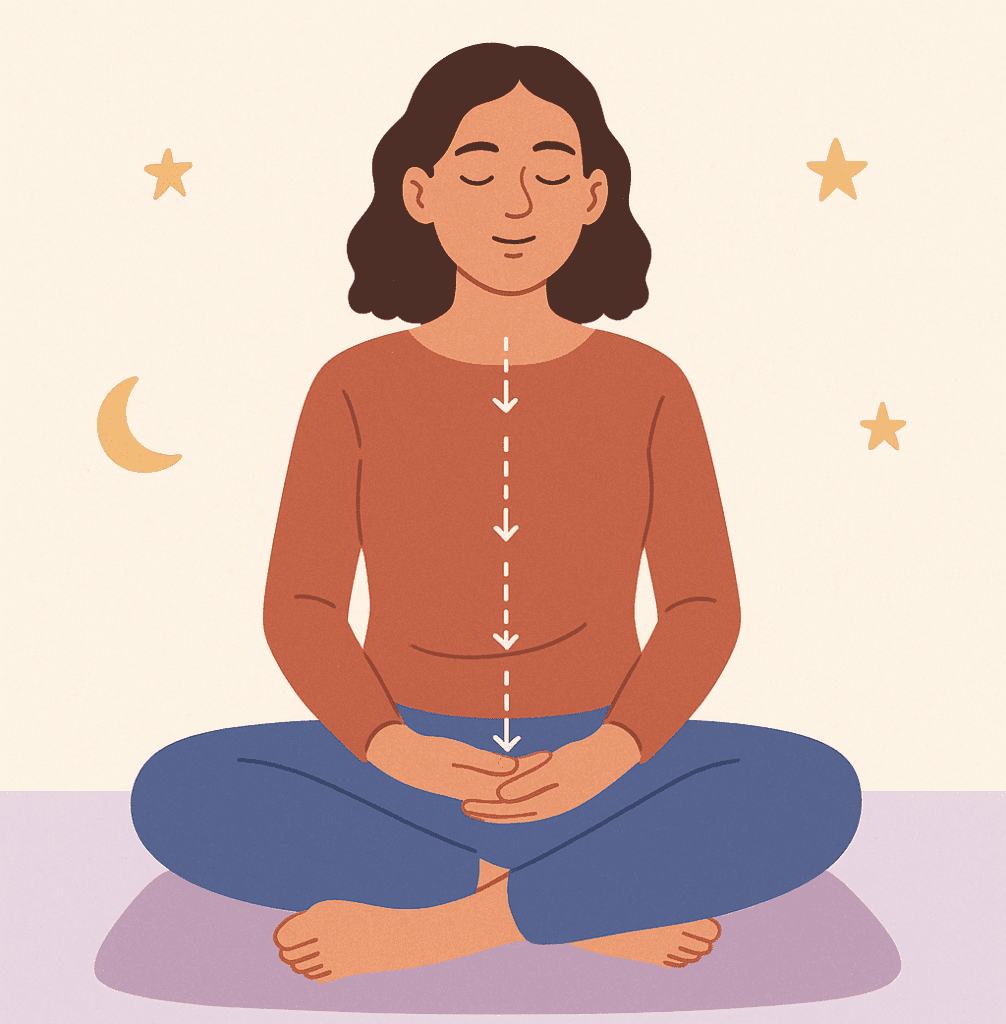
2. Body Scan Meditation for Sleep
A body scan meditation helps relax the body by gently releasing tension that builds up throughout the day and interferes with restful sleep.
How to practice:
Lie comfortably in bed and bring your attention to your feet. Gradually move your focus upward — through your legs, hips, torso, arms, neck, and head. As you notice any tightness, take a slow breath and allow that area to relax naturally.
Why it works:
By directing attention to physical sensations instead of racing thoughts, body scan meditation signals the nervous system to slow down, making it easier to drift into deep, restorative sleep.
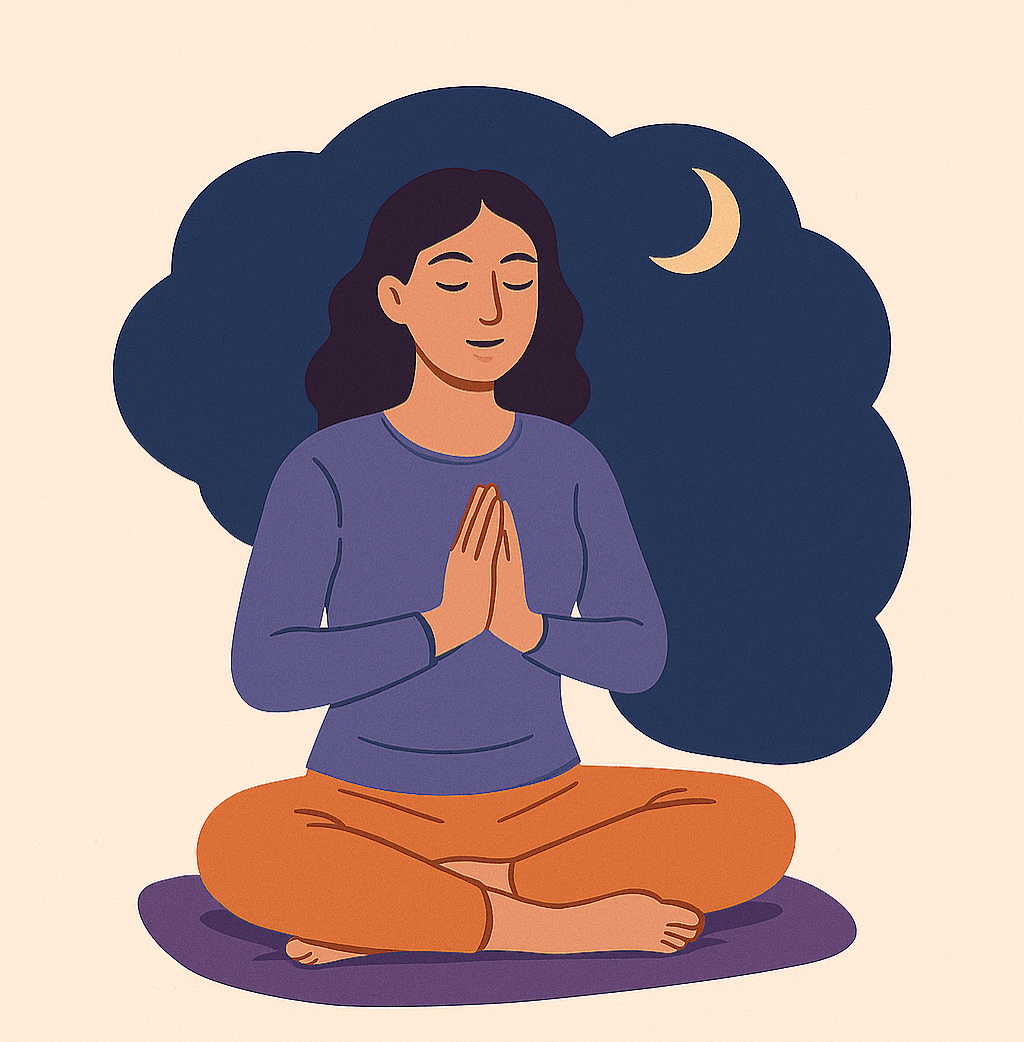
3. Counting Breaths to Calm the Mind
If your thoughts keep looping at night, counting breaths can help.
How to practice:
Silently count each breath — inhale “one,” exhale “two” — until you reach ten, then gently start again.
Why it works:
Counting gives your mind a simple task, reducing mental chatter and helping you drift into sleep.
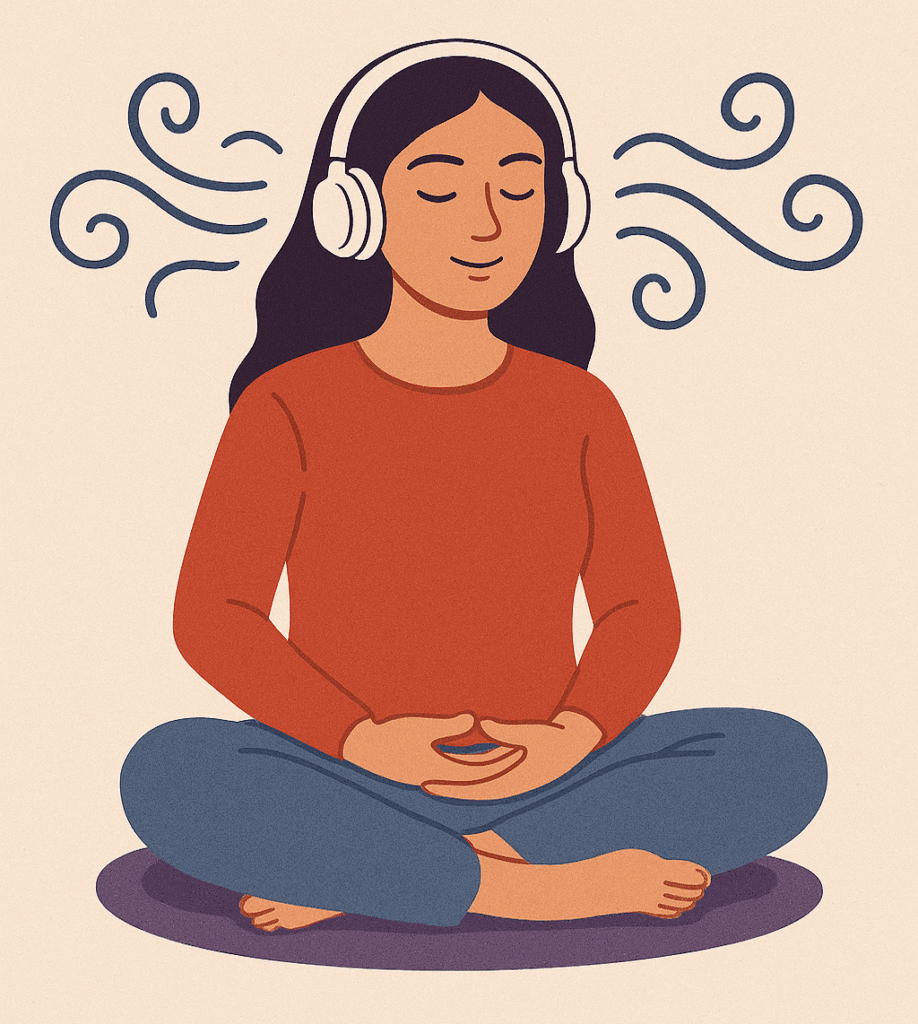
4. Guided Sleep Meditation
Guided sleep meditation is ideal if you find it hard to meditate on your own.
How to practice:
Use a guided meditation audio or app designed specifically for sleep. Choose a calm voice or gentle background sounds.
Why it works:
You don’t need to think or concentrate — simply listening helps your body relax naturally.

5. Visualization Meditation for Deep Relaxation
Visualization replaces stressful thoughts with calming imagery.
How to practice:
Imagine a peaceful setting, such as a quiet beach or forest. Picture the sounds, colors, and sensations as vividly as possible.
Why it works:
Engaging your senses helps shift your focus away from stress and into a relaxed mental state.
Why Sleep Meditation Techniques Are Effective
Sleep meditation techniques activate the parasympathetic nervous system, which lowers stress hormones and calms mental activity. With regular practice, meditation can improve sleep onset, sleep quality, and overall well-being — naturally and safely.
Make Sleep Meditation a Nightly Habit
For best results, choose one or two sleep meditation techniques and practice them consistently. Over time, your mind and body will begin to associate these calming rituals with falling asleep more easily and staying asleep longer.
